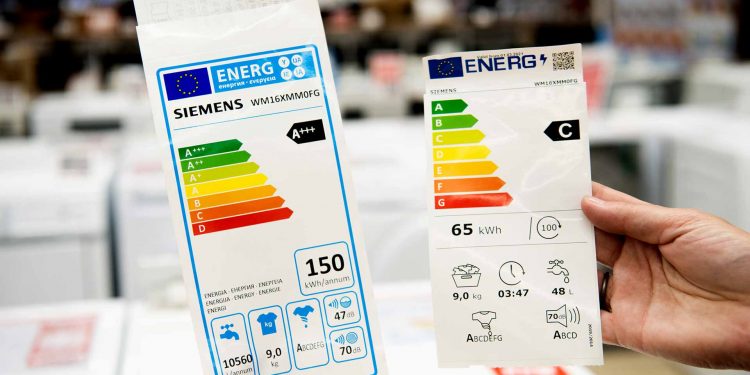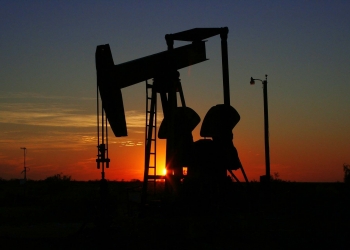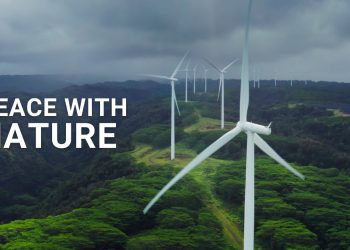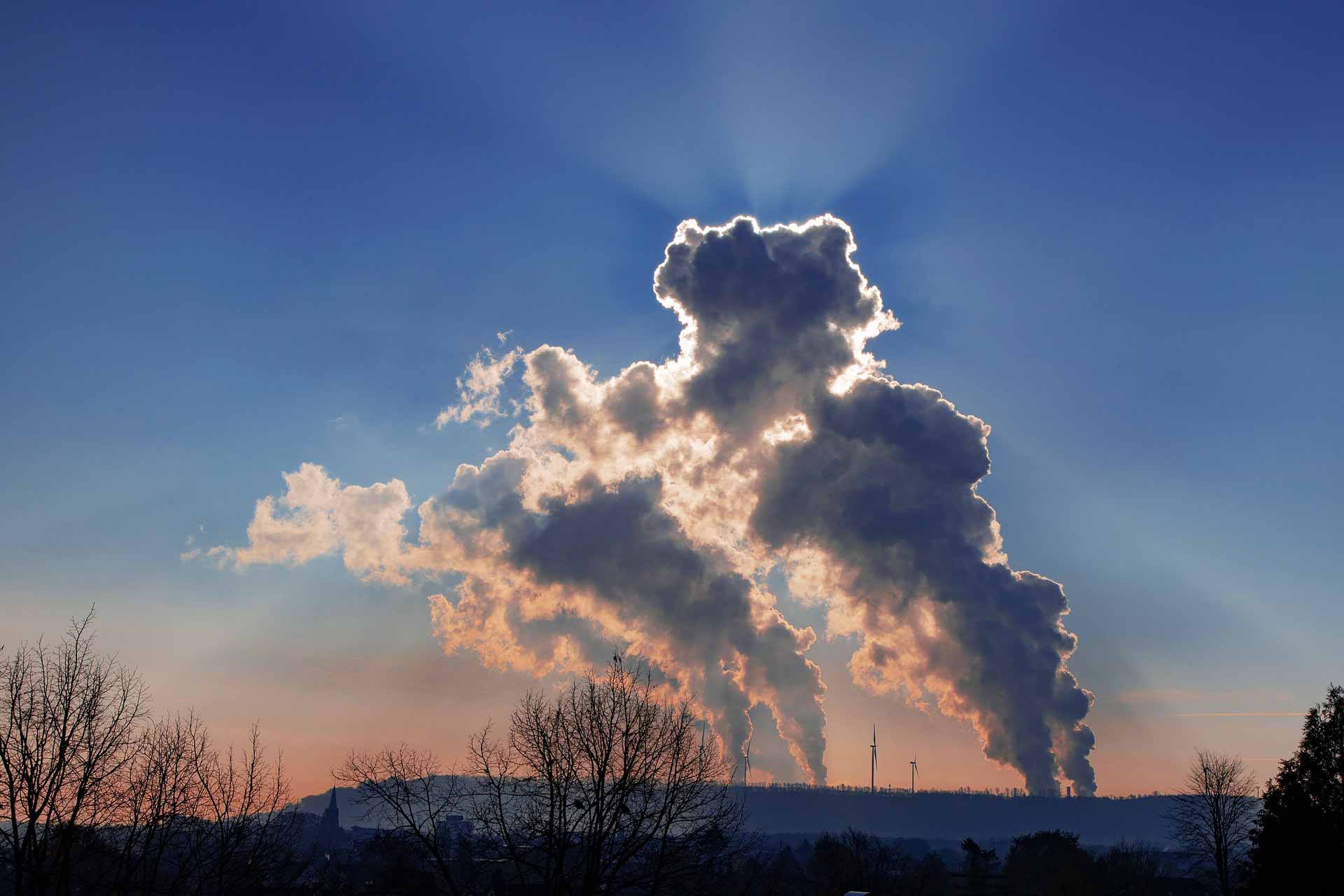A brand new version of the widely-recognised EU energy label will be applicable in all shops and online retailers from Monday, 1 March 2021. The new labels will initially apply to four product categories – fridges and freezers, dishwashers, washing machines, and television sets. New labels for light bulbs and lamps with fixed light sources will follow on 1 September, and other products will follow in the coming years.
8 in 10 consumers in Europe recognize the current EU Energy Label and consult it when buying home appliances. Thanks to the supply and demand of energy saving products, energy consumption and energy costs of appliances have drastically been reduced. Today, the majority of products are already in the 2-3 top classes. At the same time, this makes it more difficult for consumers to distinguish the most efficient products. To help EU consumers cut their energy bills and carbon footprint, EU launched the new EU energy labels with QR-code.
Why are the European energy labels changing again?
As a result of the development of more and more energy efficient products, and because the difference between A++ and A+++ is less obvious to the consumer, the EU energy labels categories will gradually adjust to reintroduce the simpler A to G scale. For example, a product showing an A+++ energy efficiency class could become a class B or lower after rescaling without any change in its energy consumption. The class A will initially be empty to leave room for more future energy efficient models.
This will enable consumers to distinguish more clearly between the most energy efficient products.At the same time, it is meant to encourage manufacturers to continue research and innovation into more energy efficient technologies.
In concrete terms, this means that 5 product groups will be ‘rescaled’ in 2021
- fridges and freezers
- dishwashers
- washing machines
- televisions
- lamps
- Fridges and freezers, dishwashers, washing machines and televisions will be active from 1 March 2021, whereas lamps will be active from 1 September 2021. Other product groups carrying EU energy labels will follow in the coming years.
What will change – and how to read the new label?
EU consumers can expect significant energy savings from the rescaling of labels, but industry professionals, like system designers and installers, will also benefit from clearer guidance.
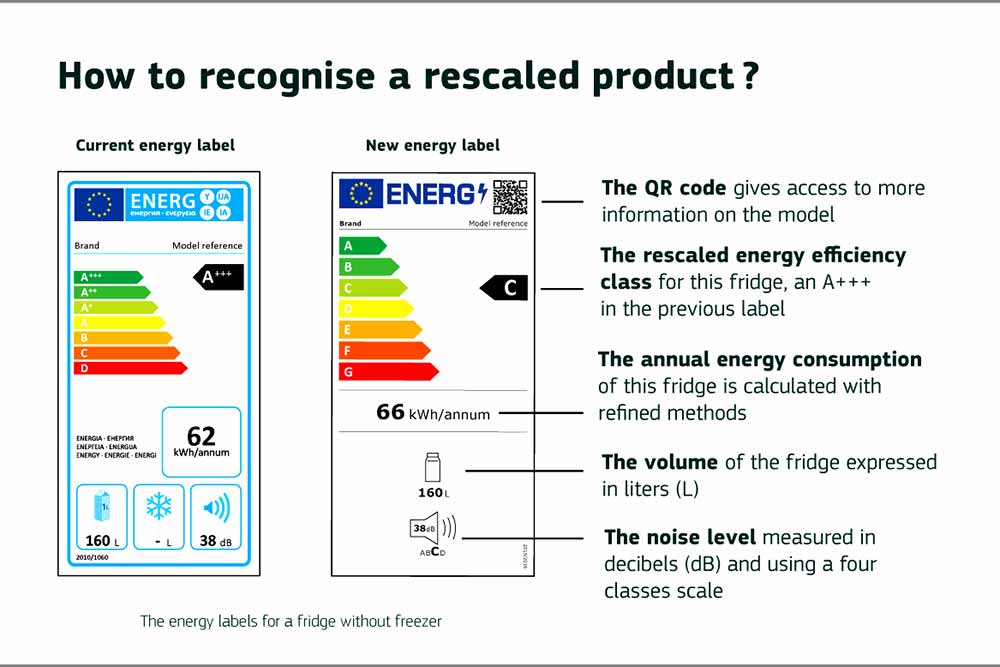
Commissioner for Energy, Kadri Simson, said: “The original energy label has been very successful, saving an average household in Europe several hundred euros per year and motivating companies to invest into research and development. Until the end of February, over 90% of products were labelled either A+, A++ or A+++. The new system will be clearer for consumers and ensure that businesses continue to innovate and offer even more efficient products. This also helps us to reduce our greenhouse gas emissions.”
The EU energy label
The EU energy label is – together with minimum “ecodesign” requirements – a success story that has been key in boosting the energy efficiency of everyday electric appliances like lighting, heating, fridges, freezers and televisions, but also products like fuel boilers, tyres and air conditioners.
Since its inception in 1994, EU energy labels have helped steer and guide consumers to choose products that use less energy and therefore, over the products life span, also cost less.
The energy label is recognised by 93% of consumers and 79% consider it when they are buying new electric appliances, according to Special Eurobarometer 492. It has been a source of inspiration both for similar labels for buildings, cars and food produce and for lawmakers, also outside the EU.
Simpler A-G scale
With more and more products achieving ratings as A+, A++ or A+++ according to the current scale, the most important change is to return to a simpler A-G scale. This scale is stricter and designed so that very few products are initially able to achieve the “A” rating, leaving space for more efficient products to be included in the future. The most energy efficient products currently on the market will typically follow the labeling “B”, “C” or “D”. A number of new elements follow labels, including a QR link to an EU-wide database, which will allow consumers to find more details about the product. A number of ecodesign rules will also come into force from 1 March – notably on reparability and the need for manufacturers to keep spare parts available for a number of years after products are no longer on the market.
As well as rescaling the energy efficiency class of the product concerned, the layout of the new label is different, with clearer and more modern icons. Like the previous labels, the rescaled labels show more than just the energy efficiency class. For a washing machine, for example, they show at a glance the number of water liters per cycle, the duration of a cycle, and the energy consumption, as measured for a standardised programme.
Does Sustainable Consumption mean less consumption?
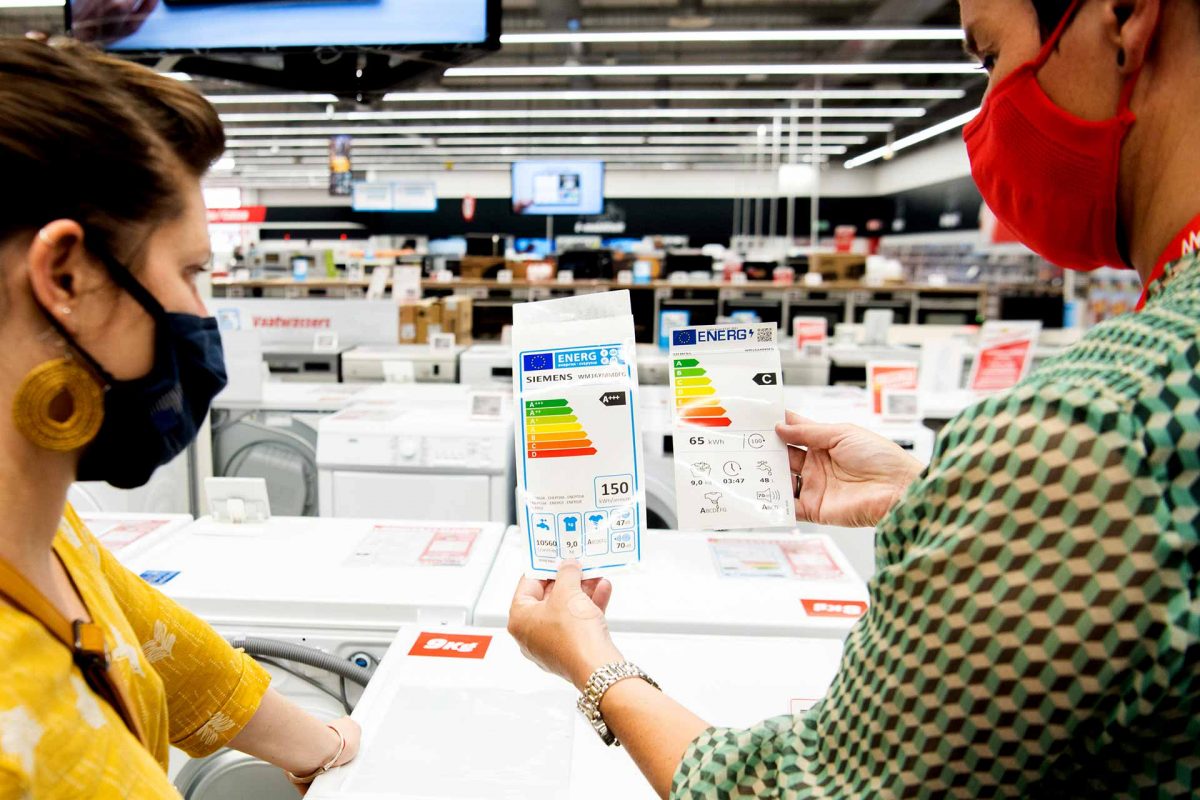
EU energy labels with QR-code
A further significant change is the introduction of a QR code on the top right of the new labels. By scanning the QR-code, consumers can find additional information about the product model, such as data relating to the dimensions, specific features or test results depending on the appliance. All appliances on the EU market have to be registered in a new EU-wide database – European Product Registry for Energy Labels (EPREL). This will further facilitate the comparison of similar products in the future.
In addition to the new energy labelling rules, there are corresponding new regulations on ecodesign that take effect on 1 March 2021. These relate notably to the updated minimum efficiency requirements and reinforce consumer rights to repair products and support the circular economy. Manufacturers or importers will now be obliged to make a range of essential parts (motors and motor brushes, pumps, shock absorbers and springs, washing drums, etc.) available to professional repairers for at least 7-10 years after the last unit of a model has been placed on the EU market.
For end-users, too (i.e. consumers who are not professional repairers, but like to repair things themselves), manufacturers must make certain spare parts available for several years after a product is taken off the market – products such as doors or hinges and seals, which are suitable for DIY action. The maximum delivery time for all these pieces is 15 working days after ordering.
Ecodesign
There is worldwide demand for more efficient products to reduce the consumption of energy and other natural resources in line with improving overall sustainability.
The EU legislation on ecodesign is an effective tool for improving the environmental performance of products by setting mandatory minimum standards for their energy efficiency. This eliminates the least performing products from the market, significantly contributing to the EU’s energy and climate targets. Ecodesign also supports industrial competitiveness and innovation by promoting better environmental performance of products throughout the internal market.
On 1 October 2019, the Commission adopted 10 measures for the product categories listed below:
- washing machines and washer-driers
- dishwashers
- electronic displays
- household refrigerators
- light sources
- refrigerators with a direct sales function
- external power supplies
- electric motors
- power transformers
- welding equipment
8 of these measures revise existing requirements, whereas refrigerators with a direct sales function and welding equipment are regulated for the first time.

